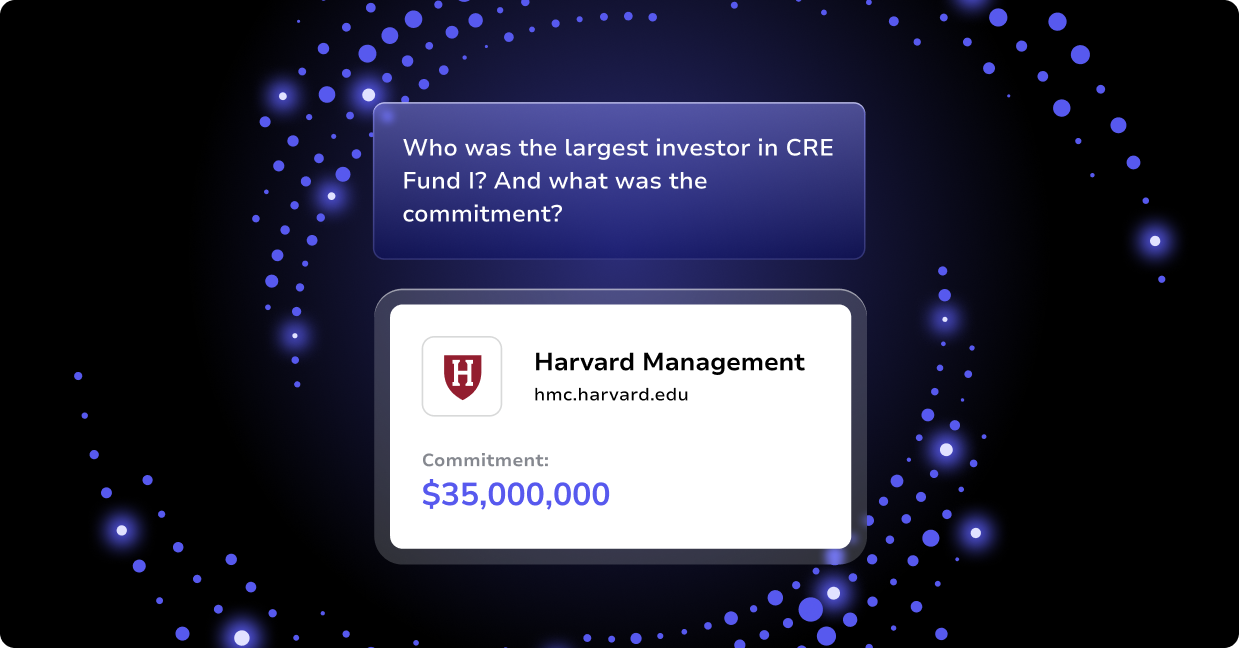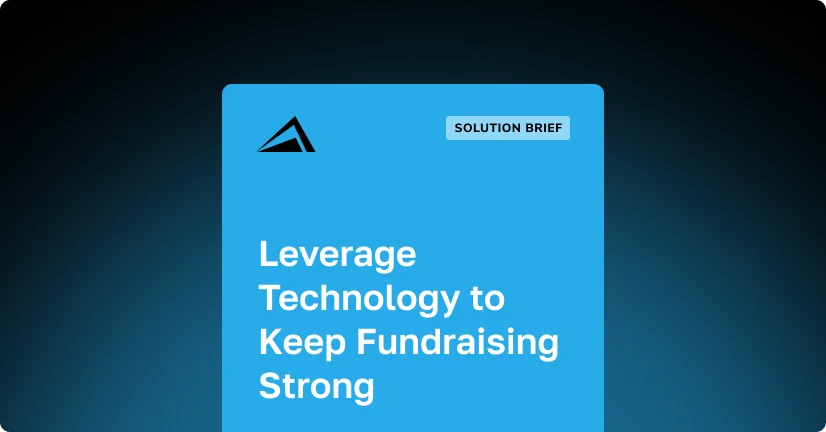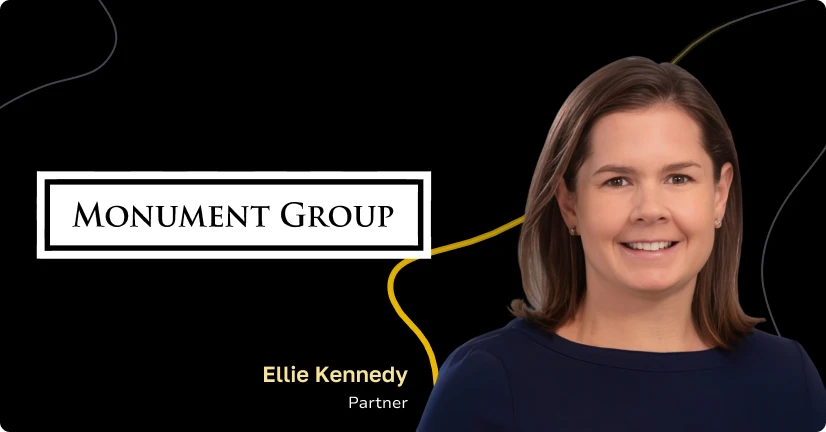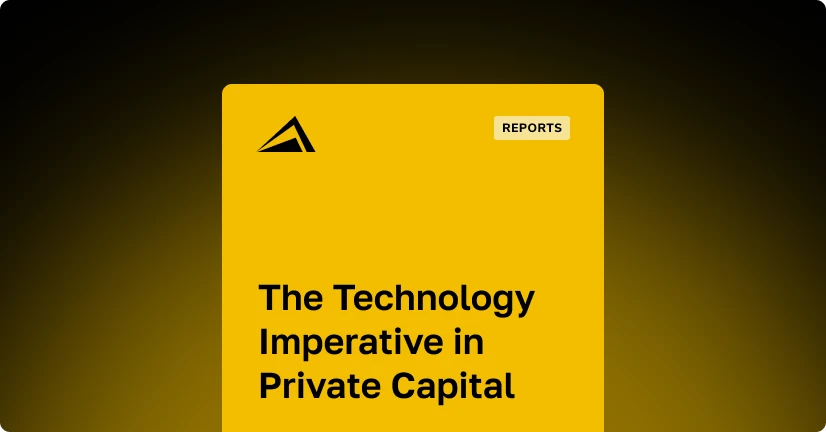Private equity is evolving, but not in ways that should surprise anyone paying attention. AI is shifting from hype to real implementation. Fundraising remains tough, with LPs holding more leverage than ever. And firms that know how to operationalize their data—not just collect and sit on it—are the ones pulling ahead.
At this year’s Women’s Private Equity Summit, these themes weren’t just talking points; they were challenges that firms are actively working to solve. The question isn’t whether the industry is changing—it’s how firms are adapting to stay competitive.
Here are my takeaways from the discussions:
AI in Private Equity: From Hype to Execution
AI continues to dominate conversations in private equity, and for good reason. But despite the excitement at the event, one fundamental question still lingered in the background: How are firms actually adopting AI in ways that drive tangible value?
The discussions at the summit reminded me of the digital transformation conversations from five years ago. There’s wide recognition of AI’s potential, yet many firms are still figuring out what it can actually do for them, how to implement it effectively, and how to measure the impact of AI’s outputs.
Too often, AI is framed as an abstract concept. It doesn’t have to be. In private equity, AI isn’t about replacing human expertise or overhauling entire workflows. It’s about:
- Eliminating inefficiencies in data and relationship management
- Accelerating workflows for fundraising and dealmaking
- Operating at an accelerated pace with a leaner team
- Reducing data and system complexity
- Enhancing decision-making with faster insights and improved accuracy
Yet, the real-world application of AI often gets lost in these buzzwords. At Altvia, we think about AI in two essential ways:
- Data hygiene is everything. If AI is going to work for you, clean, structured data and a culture that prioritizes it are non-negotiable. No matter how advanced the tool, it won’t function properly without a strong data foundation. If you’re interested in exploring how to take control of your data—we will be writing a whole other blog on that.
- AI should accelerate the mundane. The best applications of AI don’t replace expertise; they remove friction in your daily work and allow you to operate leaner:
| Quickly finding relationship data when you’re on the go | Automate logging interactions |
| Automate creating tasks in your CRM | Summarize pipeline status and progress |
| Identifying trends in investor sentiment and deal flow | Help LPs digest AGM materials for better meeting preparation |
And the list goes on. But even with all these capabilities, AI’s impact always comes back to data hygiene. In this world, the volume of data is growing at an unprecedented pace—but more data isn’t always better. In fact, data overload can do more harm than good. Quality over quantity is key. Without a disciplined approach to data, firms risk drowning in information, losing time, and missing critical insights.
This is why firms need a technology partner—not just a tool. AI must be contextualized for alternatives, helping firms take control of their data, separate what’s valuable from what’s not, and prioritize what truly moves the needle. The goal isn’t just automation—it’s making data actionable so firms can respond to investors faster, raise and deploy capital faster, report on portfolio performance faster, collaborate internally better, make long-term partnerships better, and so on.
Panelist Hot Tip from the Event: Be the human in the loop. Drive AI adoption at your firm, ask the “dumb” questions, and ensure data isn’t just accessible—but truly usable.
Fundraising: The LPs are in Control—Are you Ready?
You don’t need to have attended the Women’s Private Equity Summit to know that raising capital in 2025 won’t be any easier than it has been for the past three years. But the conversations around how firms are navigating this tough environment were insightful.
A few key takeaways stood out: LPs continue to gravitate toward alpha-firms they trust to deliver predictable returns. Competition has never been fiercer, with spinouts and new funds forming seemingly nonstop. Beyond a compelling thesis/pitch, firms now need to demonstrate past performance, a differentiated firm culture, proven operational value creation strategies, and firm talent to win LP commitments.
So where does that leave lower and middle-market firms competing with big names for capital? And what strategies are firms using to stand out?
The answer lies in firms that prioritize long-term, trust-based relationships with LPs. The ones proactively communicating, being transparent about portfolio performance, and demonstrating operational excellence. Here are some strategies shared by industry leaders at the event:
- Ultra-Transparent Communication: Investors value transparency and long-term partnerships. The firms that openly communicate their strategies to investors—rather than keeping them under wraps—will gain an edge. For example, given the state of the market, fund finance strategies are evolving—NAV loans, subscription lines, and sponsor-backed leverage are becoming more common. If you keep investors in the loop on your financing strategies, they’re more likely to see you as a good partner.
- Take Control of Your Data: LPs aren’t just looking at short-term performance in their diligence efforts—they’re digging deeper. Firms that own their data and leverage it strategically to showcase their track record will stand out. If you can’t easily tell your fund’s story with data, you’re already behind.
- Provide Proactive Updates: LPs want real-time visibility into fund performance, not just periodic updates. A centralized investor portal makes it easier to keep them engaged and confident in your strategy. And a portal that can have real-time fund/portfolio performance embedded within it? Game-changer.
None of this is unattainable, but there’s a reason why certain firms consistently rise to the top. They prioritize operational excellence, investing in the right technology, processes, and talent to ensure they can execute seamlessly. These firms recognize that investor confidence isn’t built overnight; it’s earned through consistent transparency, proactive engagement, and a data-driven approach to decision-making.
In short, firms that win in today’s fundraising landscape understand that success isn’t just about having the right story and strategy—it’s about having the right infrastructure and processes in place to back it up.
The Future Belongs to Firms That Execute
The insights from WPES 2025 are clear: Success in private equity today isn’t about just keeping up—it’s about taking decisive action. Firms that embrace AI thoughtfully, build trust with LPs through transparency, and leverage data as a strategic asset will be the ones shaping the industry’s future.
At Altvia, we empower firms to turn insights into execution. Whether optimizing capital workflows, making data work for you, or integrating AI for real impact, we help firms stay ahead of the curve. Let’s start a conversation.
Book a Demo: Here
Contact us at sales@altvia.com.




